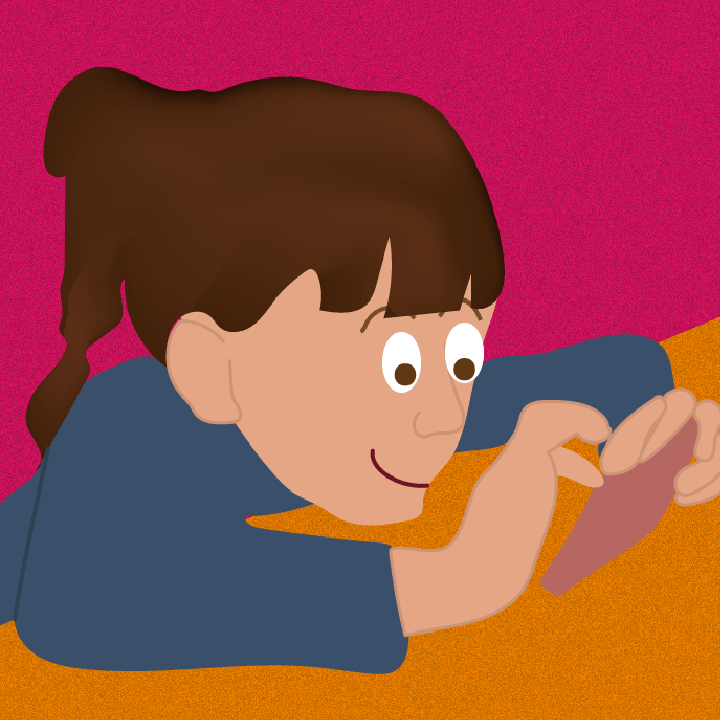CHILDREN AND SCREENS ANNOUNCES $100,000 GRANT SUPPORTING NEW RESEARCH INTO DIGITAL MEDIA USE AND BRAIN DEVELOPMENT
Children and Screens: Institute of Digital Media and Child Development is pleased to announce that it has awarded a grant of $100,000 to Marc Potenza, Ph.D., MD, Professor of Psychiatry at Yale University, Yihong Zhao, Ph.D., member of the Center of Alcohol and Substance Use Studies at Rutgers University, and their interdisciplinary, interinstitutional team, in support of their research exploring the associations between screen media activity and brain development in school-aged children.
“It is vital to investigate what ever-increasing digital media engagement means for developing brains, especially in middle childhood when children’s devices and brains are working on overdrive. Technology is advancing rapidly, and we hope to do our part to help science keep up; we are delighted to create opportunities to advance scientific research on this topic through the Institute, which I founded 13 years ago.” – Dr. Pam Hurst-Della Pietra, President and Founder, Children and Screens: Institute of Digital Media and Child Development
Drawing on longitudinal data from the NIH’s landmark Adolescent Brain Cognitive Development Study, Dr. Potenza, Dr. Zhao, and their associates intend to utilize state-of-the-art statistical methodology and predictive modeling to investigate the relationships between digital media use and changes in brain structure and function, as well as the associated clinically relevant behaviors. The study, which was proposed following the Institute’s March 2020 Digital Media and Developing Brain Research Retreat, will examine the effects of a variety of specific media-based activities and will focus on children from ages 9-12. The results of this research will yield benefits and insight not only for the research community, but also for families, clinicians, and policymakers.
“The advances in ‘big data’ approaches have led to an unprecedented increase in our understanding of how brain structure and function relate to specific behaviors. With the support of Children and Screens, we aim to apply novel and innovative big data approaches to ABCD data to understand how brain structure and function relate to, and importantly may be impacted by, types and patterns of screen media activity. Dr. Martin Paulus and colleagues used a portion of the first wave of ABCD data to identify patterns of cortical thinning associated with screen media activity. We hope to build off and extend this work by examining the full initial sample and subsequent waves of ABCD data to determine brain-behavior relationships with respect to youth screen media activity. We hope to communicate these findings in order to advance prevention and policy efforts that promote healthy childhood development in environments increasingly involving digital technologies.” – Dr. Marc Potenza, Grant Recipient
Bridging the medical, neuroscientific, social scientific, education, and academic communities, the Children and Screens’ interdisciplinary scientific research grants program was conceived as part of a larger research program to advance and support study, knowledge, and scientific collaboration. Developed in 2017, the grants program provides researchers with access to the early-stage financial support necessary to pilot worthy new projects studying the impact of children’s engagement with current and evolving technologies.
In addition to the research funds awarded as part of the retreat program and those granted to explore the impacts of digital media during the current health crisis, Children and Screens’ regular Tips for Parents newsletter provides evidence-based, practical advice for families coping with the unprecedented realities of the pandemic, including changed economic circumstances, health concerns, lockdowns, social distancing, remote learning, and working from home. Each newsletter features insights from world-renowned experts, who share tips and advice about managing screen time, social media use, gaming, technology addiction, privacy, parenting, and more.
In addition, our popular, bi-weekly Ask the Experts virtual workshop series features dynamic conversations among international, interdisciplinary experts in the field of digital media and child development. Each discussion explores a different digital media challenge associated with the COVID-19 pandemic and presents families with current scientific research, clinical advice, and practical, evidence-based advice. Panelists include leading parenting experts, former AAP Presidents, top child and adolescent psychiatrists, high-impact journal editors, leading researchers, well-known authors, and others. To date, the series has reached parents, researchers, educators, clinicians, government agencies, and public health professionals in over 30 countries and all 50 states.
About Children and Screens:
Since its inception in 2013, Children and Screens: Institute of Digital Media and Child Development, has become one of the nation’s leading non-profit organizations dedicated to advancing and supporting interdisciplinary scientific research, enhancing human capital in the field, informing and educating the public, and advocating for sound public policy for child health and wellness.






